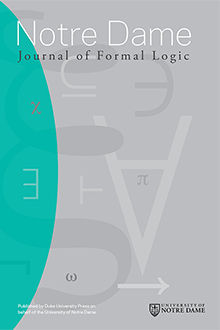Abstract
The goal of this paper is to explore the significance of Montague’s paradox—that is, any arithmetical theory over a language containing a predicate satisfying (T) and (Nec) is inconsistent—as a limitative result pertaining to the notions of formal, informal, and constructive provability, in their respective historical contexts. To this end, the paradox is reconstructed in a quantified extension (the quantified logic of proofs) of Artemov’s logic of proofs (). contains both explicit modalities (“ is a proof of ”) and also proof quantifiers (“there exists a proof of ”). In this system, the basis for the rule NEC is decomposed into a number of distinct principles governing how various modes of reasoning about proofs and provability can be internalized within the system itself. A conceptually motivated resolution to the paradox is proposed in the form of an argument for rejecting the unrestricted rule NEC on the basis of its subsumption of an intuitively invalid principle pertaining to the interaction of proof quantifiers and the proof-theorem relation expressed by explicit modalities.
Citation
Walter Dean. "Montague’s Paradox, Informal Provability, and Explicit Modal Logic." Notre Dame J. Formal Logic 55 (2) 157 - 196, 2014. https://doi.org/10.1215/00294527-2420636
Information





